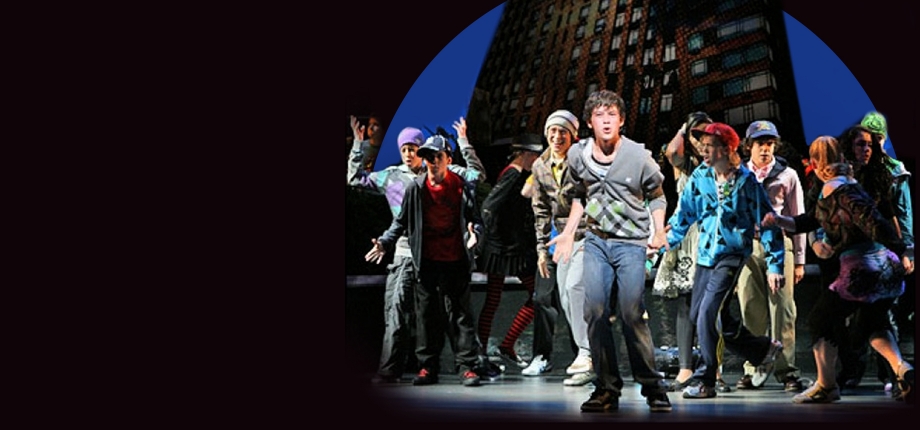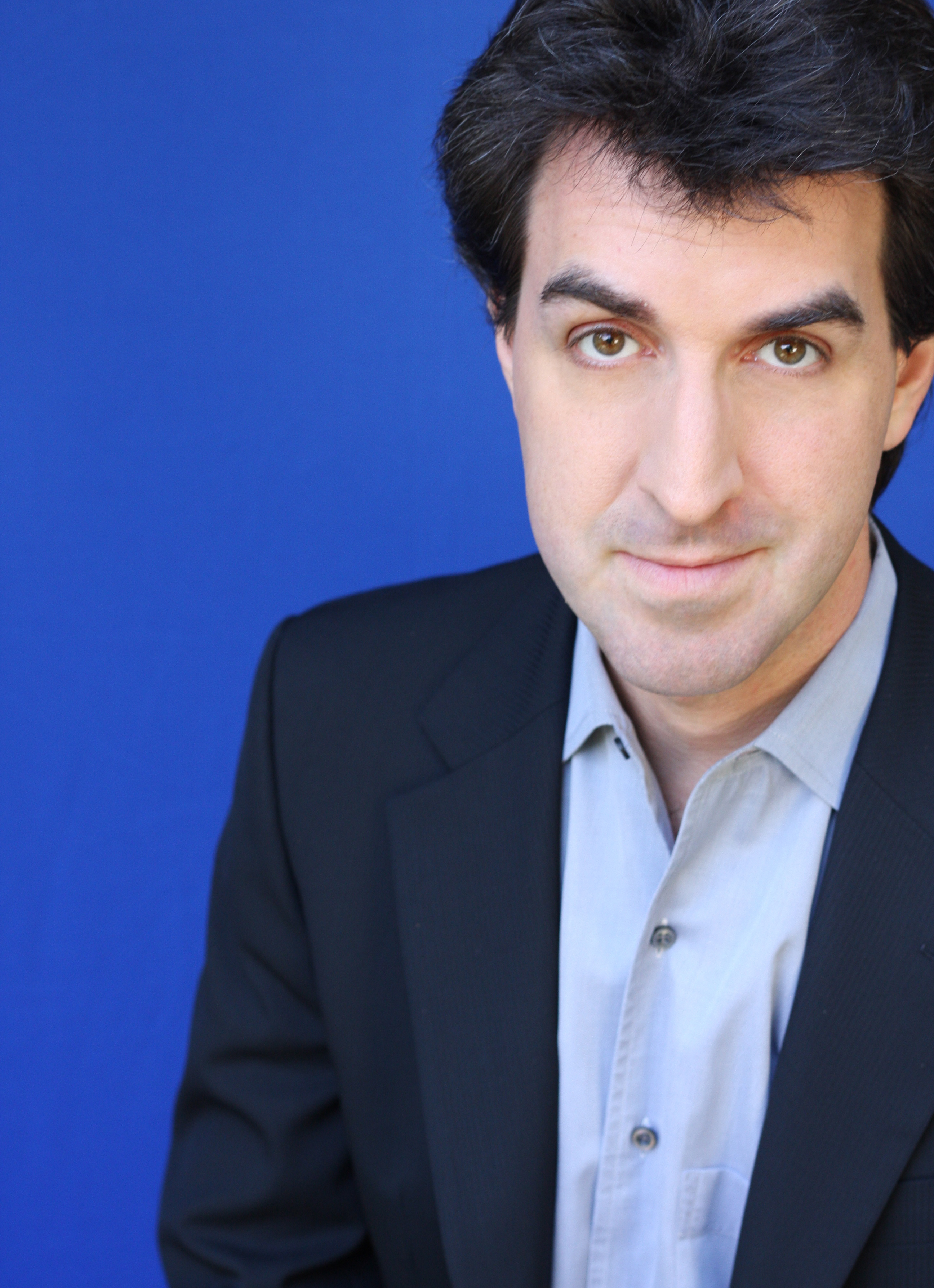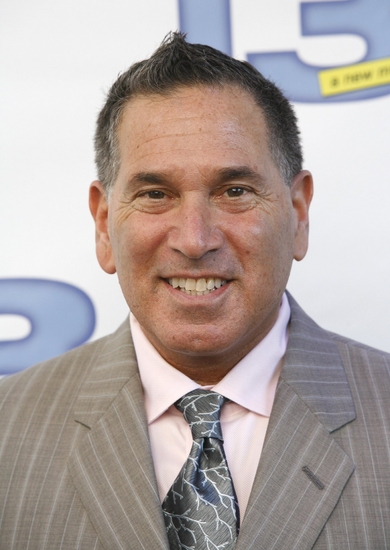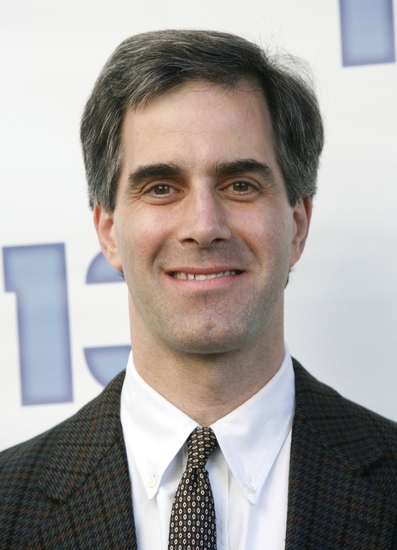13 Turns 10! An interview with Jason Robert Brown, Dan Elish, and Robert Horn

13 Turns 10! An interview with Jason Robert Brown, Dan Elish, and Robert Horn
On its opening night ten years ago on October 5th, 13 brought fresh young voices to Broadway with its cast of teenage talent. The production not only had teenagers performing in all roles as actors (which yes, included future pop star Ariana Grande) - but as musicians, too. Playing characters their own age, the ensemble sang about themes which anyone who is, or was a teenager, can relate.
Everyone eventually grows up, but 13 remains youthful and jubilant as ever. In commemoration of the show's decade-long impact on musical theatre, composer Jason Robert Brown and librettists Dan Elish and Robert Horn explained how the show came to be and its relevance for today's audiences and performers:
"13 really came from my frustration with being the age I was and what the professional theater felt like," said Brown. "I thought if I do something that is with kids, I get to go back and have those feelings again. I get to go back and share that enthusiasm. And I didn't want it just to be 'let's hire a bunch of kid actors and surround them with grown-ups.' Let kids take over the whole theater! Everyone who communicated to the audience was going to be about 13 years-old."

Jason Robert Brown
The idea of a musical consisting of only teens playing roles their own ages came from his own experience as a young actor at the renowned French Woods summer camp.
"When I was at French Woods, so much of the material we had to do was to be grown-ups," explained Brown. "You had to play grown-ups, older teenagers, or play teenagers from a different time."
Initially, Brown pitched the idea of an all-teenage musical to Scholastic, only for nothing to come to fruition.
The ball got rolling again when Elish attended a talk that Brown gave after seeing The Last Five Years. When Brown mentioned wanting to create a show about "dancing teenagers", a light bulb went off in Elish's brain. He sent Brown a copy of Born Too Short, Elish's novel about an 8 th grader who lives in the shadow (literally and figuratively) of his enviously tall best friend.
"It took me a while to gather the nerve to send him my book - it was the spring of 2003," recalls Elish. "Jason was doing Urban Cowboy then and we met one day between shows. Over lunch at Virgil's, Jason took out a sheet of paper which had a paragraph or so description of the plot to what became 13. The main elements were all there. The main characters, too: Evan Goldman, Patrice and Archie. From the beginning, Jason wanted to do a show that starred all kids and had a kid band."
Robert Horn subsequently came on board, completing the team. Together, they created the world of Evan Goldman and the kids he crosses paths with after moving from New York City to Appleton, Indiana.
"When I was approached to be part of the team and write the book, we talked a lot about what [being a teen] meant; where do we fit in?" remarked Horn. "What are those irreversible decisions we make in our youth that are inspired by the wrong ideas or start to define us; peer pressure, a longing for acceptance, a desire to feel part of a community. Then, how can we make it funny without ever condescending to the struggles."
For the authors, creating 13 allowed them to reconnect with the fun and joy of creativity that can get lost in established, "serious" careers.
"The minute Jason and I, as well as Jason and Dan, sat down to write, we connected and gave each other permission to laugh at anything!" said Horn.
"Up until I did 13, the shows I had done likeSongs for a New World, Parade, and The Last Five Years," explained Brown. "They were all very serious shows and they were very emotional shows and they were very grown-up pieces. What I was losing in my professional ambition at the time was the kind of ridiculous joy of creation that I had had as a kid."
An adult-free show might seem intimidating for a writer. But working within limitations for a show was familiar to Brown. The Last Five Years, a show with only two characters, had shown him how restrictions could enhance creative thinking.
"I was very inspired ultimately by having that small of a box to work in," explained Brown. "In a way, by saying I had thirteen 13 year-olds in the cast was another very good box for me. I liked the math of it. I liked knowing I couldn't cheat out of that by all of a sudden bringing in a grown-up to save the day, to sing the big note. Everything had to come from the kids."

Robert Horn
Despite their teen years being behind them, Brown, Elish, and Horn found that honestly channeling their own insecurities and aspirations from that age translated effortlessly to the characters they were creating.
"The problems of a 13 year-old are eternal, aren't they?," mused Elish. "The same things that bothered me when I was 13 in 1973, bother many 13 year-olds today. Every kid wants to fit in. Every kid feels like an outsider at some point. I think that the show addresses these issues with humor and honesty."
"Fads and pop culture changes - emotional growing pains and angst do not," noted Horn. "The platforms for which they are delivered modernize, the tropes and travails of growing up do not. I think there will always be the need to fit in, a desire to figure out who you are and what you stand for, first loves, second places, humiliations, confidences, betrayals, and through it all - the ability to try and laugh at the craziness life throws at you."
"I don't think those emotions are exclusive to adolescence, and they're certainly not exclusive to adolescence at any particular time," said Brown. "There are just certain universal feelings about needing to belong, needing to connect, needing to find your community, feeling left out."
Working with an ensemble that was significantly younger than the average Broadway cast was eye-opening for Brown, Elish, and Horn.
"They are funnier, and louder than most adults I've worked with," remarked Horn. "Don't underestimate the creativity of a kid - they see the world with less cynicism and more colors than many adults have left on our palettes."

Dan Elish
"I was amazed by the generosity the kids had towards each other," said Brown. "I was amazed of the way they all thought of each other as being amazing."
As Brown worked with the cast, he saw 13's dynamics and themes play out right in front of him, further demonstrating its timelessness and honest appeal.
"Kids will sort of split very specifically into their cliques, into their groups," observed Brown. "It is the reason that high school is what it is, because of that instinctive behavior, which we do - if we're lucky - grow out of, but that tribalism is key. And that was the thing that I watched happen when I was working with these 13 year-olds - the force of that tribalism."
When asked to give advice to future directors and producers for 13 , the authors boiled it down to four points: give in to the material, trust your actors, focus on the humor, and have fun!
"My advice to directors looking to produce the show is to keep it simple," advised Elish. "Let the jokes land and play the emotions honestly. I've always thought that 13 had a few great things going for it. First, it has Jason's great music. Then it has a heartfelt story, laced with humor, that illustrates a typical 13 year's angst. Just trust the material and HAVE FUN with it."
"You have to trust the material," re-affirmed Brown. "You have to trust that what's on the page works and not feel like 'Oh, how am I going to fix it? How am I going to make it my own?' The kids are going to make it their own. The kids are the special effects of the show. There's no helicopter, no chandelier - the kids are what's exciting about the piece."
"Bring earplugs for your break times," sagely suggested Horn. "Trust the instincts of the actors playing the roles - they remember their youth better than we do - and foremost - have fun. The best singer may not be the best casting. The worst actor might be the perfect one for the part, because he or she knows what it feels like."
Ten years strong, 13 is just as special as when it debuted on Broadway and ultimately more relevant than ever.
"We live, now more than ever, in an era where such important subjects as bullying, shaming, and equality are forefront in the culture," stated Horn. "13 addressed those subjects in a way that, I hope, still feels organic to the kids going through it, and the adults who remember it well."

























